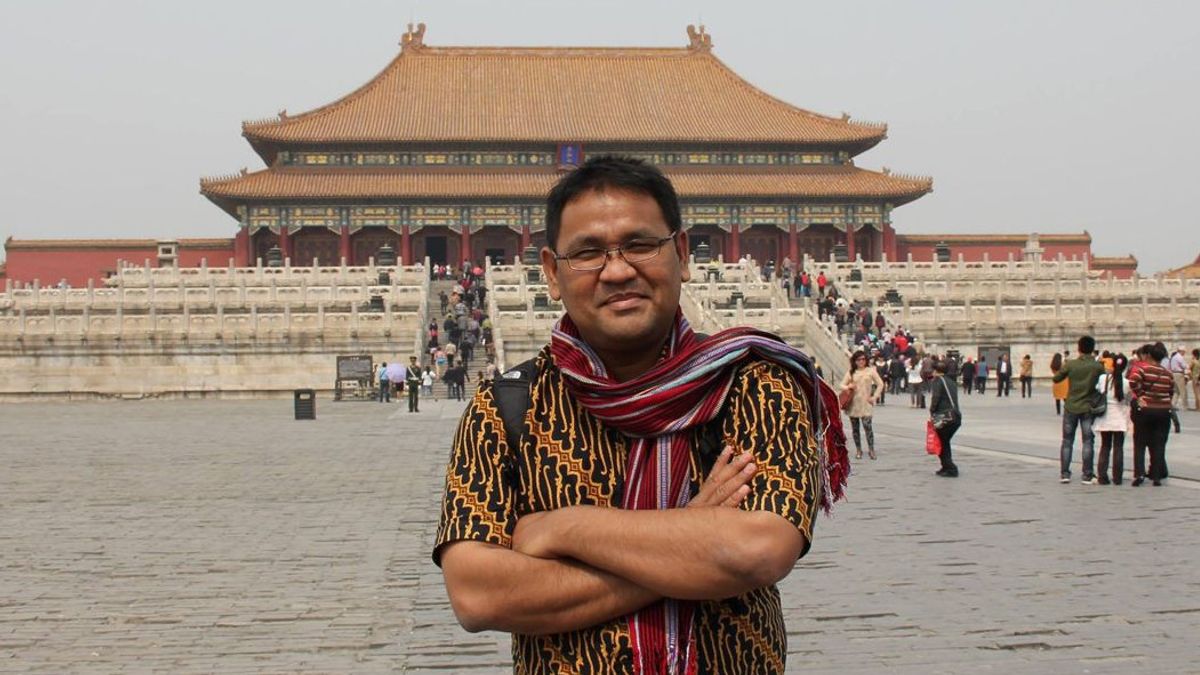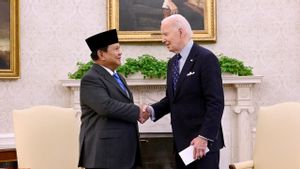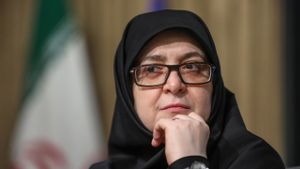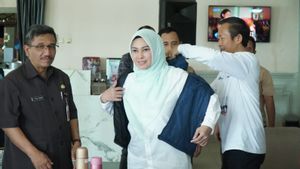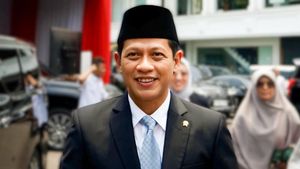JAKARTA - A joint statement issued after the meeting of President Prabowo Subianto and President Xi Jinping in Beijing, the People's Republic of China (RRC), did not endanger Indonesia's sovereignty over Indonesia's territorial seas north of the Natuna Island waters bordering the South China Sea.
On the other hand, this joint statement actually strengthens Indonesia's sovereignty over Indonesia's territorial seas.
This was said by international relations observer DR. Teguh Santosa in a statement received by VOI editorial staff, Wednesday, November 13.
Teguh said that Indonesia's territorial sea boundaries in these waters had been agreed between Indonesia and two neighboring countries, Vietnam and Malaysia, and had been described in a new map of Indonesia released in 2017 with a blue complete line.
"The settlement of Indonesia's territorial maritime boundaries with Vietnam and Malaysia is the culmination of the archipelago's sea struggle which has started since the era of Prime Minister Djuanda Kartawidjaja (Djuanda Declaration 1957) and was adopted internationally in the United Nations Convention on the Law of the Sea or UN Convention on the Law of Sea (UNCLOS) 1982," said the lecturer for international relations at the State Islamic University (UIN) Syarif Hidayatullah, Jakarta, that.
SEE ALSO:
The former Vice Chancellor of Bung Karno University (UBK) added that beyond the territorial sea limits, Indonesia and two neighboring countries, Vietnam and Malaysia, still have different views on the boundaries of the Exclusive Economic Zone (EEZ) of each country. In the new map of Indonesia 2017 this limit is described with a pink cut line.
For a long time, continued Teguh, who is also a member of the International Relations and Cooperation Institute (LHKI) PP Muhammadiyah, the waters of the South China Sea have become one of the complex and complex problems among ASEAN countries that have islands in the waters.
Tahun 2009 RRC ikut mengklaim perairan tersebut sebagai miliknya. Klaim RRC yang menggunakan sembilan garis putus putus atas atau nine dashed-lines (9DL) itu berada di luar laut teritorial Indonesia. Namun, 9DL berisian dengan laut teritori Filipina, Malaysia, Brunei Darussalam, dan Vietnam, serta sebagian EEZE Indonesia, ujar Wakil Sekjen Masyarakat Ekonomi Syariah (MES) ini.
The former chairman of the Muhammadiyah Youth PP Foreign Affairs gave an example of the attitude of the Philippines in disputes in the South China Sea. The Philippines, which objected because its territorial sea was seized by the RRC, had filed a lawsuit with the Permanent Court of Arbitration (PCA) in the Netherlands in 2013. In 2016, PCA won the Philippines lawsuit. However, the RRC did not admit the proposed case, so it automatically did not admit the PCA decision.
"Thus it can be understood that the term areas of overlapping claims' used at the 9th point of the joint statement between the Republic of Indonesia and the RRC refers to waters outside the sea of Indonesian territory, in fact it is claimed by various countries in the region," said the General Chair of the Indonesian Cyber Media Network (JMSI).
According to the former Vice President of Confederation of ASEAN Journalists (CAJ), the 9th point of this joint statement between the Republic of Indonesia and the RRC actually offers a new approach that can be used to resolve disputes and start a regional cooperation round in the waters, without ignoring let alone promoting UNCLOS 1982 and Declaration on the Conduct (DOC) of Parties in the South China Sea.
Settlement using this model, he continued, has been implemented in a number of complicated water disputes, such as in the Kaspia Sea between Azerbaijan, Iran, Kazakhstan, Russia, and Turkmenistan, in 2018.
On the other hand, Teguh, who was once the Head of the Foreign Affairs Division of the Indonesian Journalists Association (PWI), also said that the joint statement between RI and RRC was a manifestation of the good neighborhood policy introduced by the Prabowo Subianto government. "As a good neighbor, Indonesia feels obliged to offer solutions to conflict resolution and turn tension into mutually beneficial cooperation," said Teguh Santosa.
The English, Chinese, Japanese, Arabic, and French versions are automatically generated by the AI. So there may still be inaccuracies in translating, please always see Indonesian as our main language. (system supported by DigitalSiber.id)
